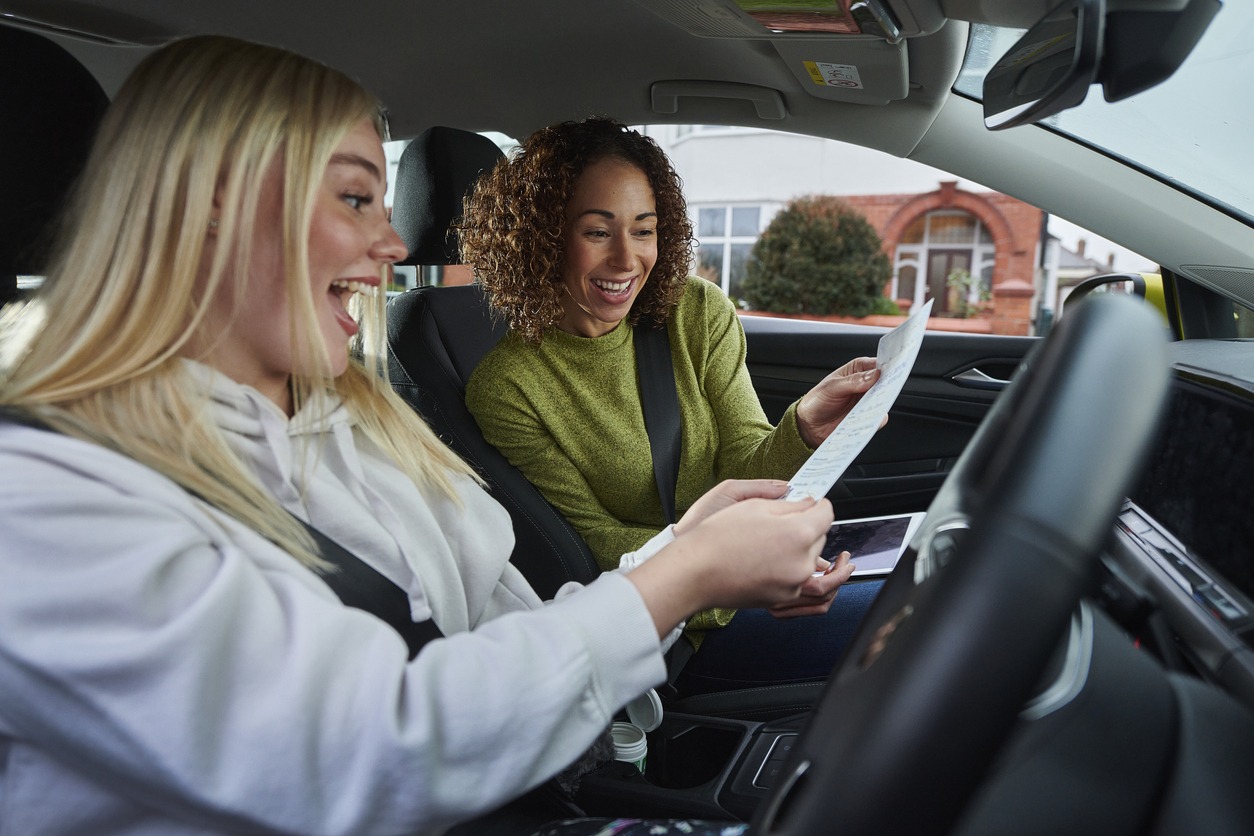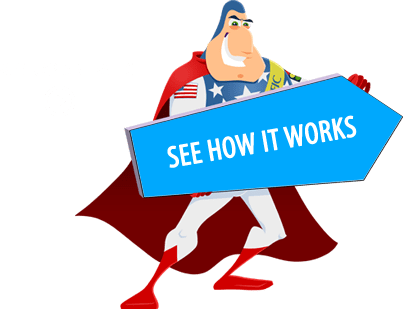What is Traffic School? Everything You Need to Know About Traffic School in 2024

Traffic school is a valuable resource for many drivers, providing education that can lead to ticket dismissal, point reduction, and hopefully, can improve driving skills. This is a comprehensive guide on everything you need to know about traffic school in 2024.
What is Traffic School?
Traffic school is an educational program designed to teach drivers about traffic laws, safe driving practices, and defensive driving techniques, with the primary goal of improving road safety and helping drivers avoid future traffic violations. Traffic school can either be mandated by a court, required by the DMV, or voluntarily chosen by drivers looking to enhance their driving knowledge.
Traffic School vs Driving School – The Main Differences
Understanding the differences between traffic school and driving school is crucial for choosing the right program based on your needs.
Traffic School
Traffic school is for drivers who have received traffic violations. It educates drivers about traffic laws and safe driving to prevent future violations. The curriculum often includes lessons on the consequences of traffic violations, defensive driving techniques, and updates on state traffic laws. Traffic school is mandated by courts or the DMV for drivers who have committed minor traffic offenses.
Driving School
Driving school, on the other hand, is for new drivers learning to drive for the first time. It covers basic driving skills, vehicle operation, and preparation for the driving test. The curriculum includes practical driving lessons, and classroom instruction on road rules and often culminates in taking a driving test to obtain a driver’s license.
Common Reasons Why Drivers Attend Traffic School
Drivers attend traffic school for various reasons, ranging from ticket dismissal to voluntary education.
Ticket Dismissal
One of the most common reasons drivers attend traffic school is to dismiss a traffic ticket. By completing traffic school, the violation does not appear on the driver’s record, which can help maintain a clean driving record. This can prevent increases in insurance premiums and avoid the accumulation of points that can lead to license suspension.
Point Reduction
Accumulating points on your driving record can lead to higher insurance premiums and potential license suspension. Completing traffic school can reduce the number of points on your record, helping you avoid these negative consequences and maintain a good driving record.
Court Order
In some cases, attending traffic school is required by a court order. Judges may mandate traffic school as part of the sentencing for a traffic violation. This is often used as a corrective measure to educate drivers and encourage safer driving behaviors, rather than imposing harsher penalties like fines or license suspension.
Voluntary Education
Some drivers choose to attend traffic school voluntarily to improve their driving skills and knowledge. This can be particularly beneficial for drivers who have not taken a driving course in many years or those who want to stay updated on the latest traffic laws and safe driving practices. Voluntary attendance can also demonstrate a commitment to safe driving, which may be viewed favorably by insurance companies and the DMV.
Insurance Benefits
Some insurance companies offer discounts to drivers who complete traffic school. These discounts are based on the assumption that drivers who have received additional education are less likely to be involved in accidents. Completing traffic school can thus lead to lower insurance premiums, providing a financial incentive in addition to the educational benefits.
Types of Traffic School
Traffic school is available in different formats to suit various preferences and schedules. Understanding the options can help you choose the best format for your needs.
In-Person Traffic School
In-person traffic school involves attending a physical classroom setting and requires a full-day or 8 hour commitment. The primary benefit of in-person instruction is that it allows for direct interaction with instructors and peers, which can enhance learning and understanding. The structured environment can also help some students stay focused and engaged throughout the course.
Online Traffic School
Online traffic school offers flexibility, allowing drivers to complete the course at their own pace from the comfort of their home. This option is ideal for those with busy schedules or those who prefer a self-paced learning environment. Online courses cover the same educational content as in-person classes and are designed to meet the same educational standards. The convenience of logging in and out as needed makes online traffic school a popular choice for many drivers.
Eligibility for Traffic School
Eligibility for traffic school depends on various factors, and understanding these can help you determine if you qualify. Generally, only drivers with non-commercial licenses are eligible to attend traffic school for ticket dismissal or point reduction. The ticket must be for a moving violation, not a major offense like DUI. Additionally, drivers are typically allowed to attend traffic school once every 18 months to dismiss a ticket. Finally, the court handling your ticket must approve your attendance at the traffic school.
How Does Traffic School Work in California?
Understanding the process of how traffic school works in California can help you navigate your options effectively. The process includes registration, course content, and a final exam.
Registration Process
To register for traffic school, drivers must first receive approval from the court or DMV. Once approved, they can choose an accredited traffic school and complete the registration process. This process usually involves providing the ticket information and paying any necessary fees. It’s important to choose a school that is approved by the DMV and the court to ensure that the completion certificate will be accepted.
Course Content
Traffic school courses cover a variety of topics, including traffic laws, safe driving practices, and the consequences of violations. The curriculum is designed to educate drivers on the rules of the road, techniques to avoid accidents, and the importance of defensive driving. Courses typically include interactive lessons, videos, and quizzes to reinforce learning.
Final Exam
Most traffic school courses conclude with a final exam to test your understanding of the material. The exam typically consists of multiple-choice questions that cover the key concepts learned throughout the course. Passing the exam is required to complete the course and receive a certificate of completion. This certificate is then submitted to the court or DMV to fulfill the traffic school requirement. Successfully passing the final exam demonstrates that you have comprehended the material and are prepared to apply it to your driving habits.
Costs Associated with Traffic School
Understanding the costs associated with traffic school can help you make an informed decision about which option is best for you. Costs vary based on whether you choose in-person or online courses.
In-Person Costs
In-person traffic school costs typically range from $20 to $45. Commuting costs can also add to the total expense, including fuel, public transportation fares, and parking fees, which can range from $10 to $30 depending on your location. Attending in-person classes may also require taking time off work, resulting in potential lost wages.
Online Costs
Online traffic school costs usually range from $15 to $40. One of the main benefits of online courses is the lower overall cost, as there are no commuting expenses and often lower registration fees. The flexibility of completing the course at your own pace also means you can avoid taking time off work, making it a more convenient and cost-effective option. Additionally, some online schools offer discounts or promotions that can further reduce the cost.
How to Choose the Right Traffic School
Here are five steps to help ensure you choose the right traffic school for you:
1. Verify Accreditation
Ensure that the traffic school is accredited and approved by the DMV and the court handling your ticket. This guarantees that the course will meet the necessary requirements and that your completion certificate will be accepted.
2. Compare Costs
Compare the costs of different traffic schools and ensure that they fit within your budget.
3. Consider Convenience
Decide between in-person and online classes based on your schedule and learning preferences. Online courses offer flexibility, while in-person classes provide structured learning environments and direct interaction with instructors.
4. Check Reviews and Ratings
Look for reviews and ratings from other drivers who have attended traffic school. Positive feedback and high ratings can indicate a reputable school with effective teaching methods and good customer service.
5. Evaluate Course Content
Ensure that the traffic school’s curriculum covers essential topics such as traffic laws, defensive driving techniques, and safe driving practices. A comprehensive course will provide the knowledge and skills needed to become a safer driver.
Common FAQs About Traffic School
Here are some frequently asked questions concerning traffic school:
Can I Attend Traffic School for Any Ticket?
No, traffic school is generally available only for minor moving violations. Major offenses like DUI are not eligible. It’s important to check with the court handling your ticket to determine if you qualify for traffic school based on your specific violation.
How Often Can I Attend Traffic School?
Drivers can typically attend traffic school once every 18 months to dismiss a ticket. This restriction helps ensure that drivers are not repeatedly using traffic school to avoid the consequences of multiple violations.
Will My Insurance Company Know if I Attend Traffic School?
If traffic school is completed for ticket dismissal, the violation does not appear on your driving record, so insurance companies will not be informed. This can help keep your insurance premiums from increasing due to the violation.
How Long Does It Take to Complete Traffic School?
Traffic school usually takes about 8 hours to complete, whether online or in-person. The time commitment is designed to ensure that drivers receive a comprehensive education on traffic laws and safe driving practices.
Conclusion
Traffic school provides a valuable opportunity for drivers to improve their knowledge of traffic laws, enhance their driving skills, and avoid the negative consequences of traffic violations. By understanding the options, costs, and benefits associated with traffic school, drivers can make informed decisions and take advantage of this educational resource to maintain a clean driving record.




